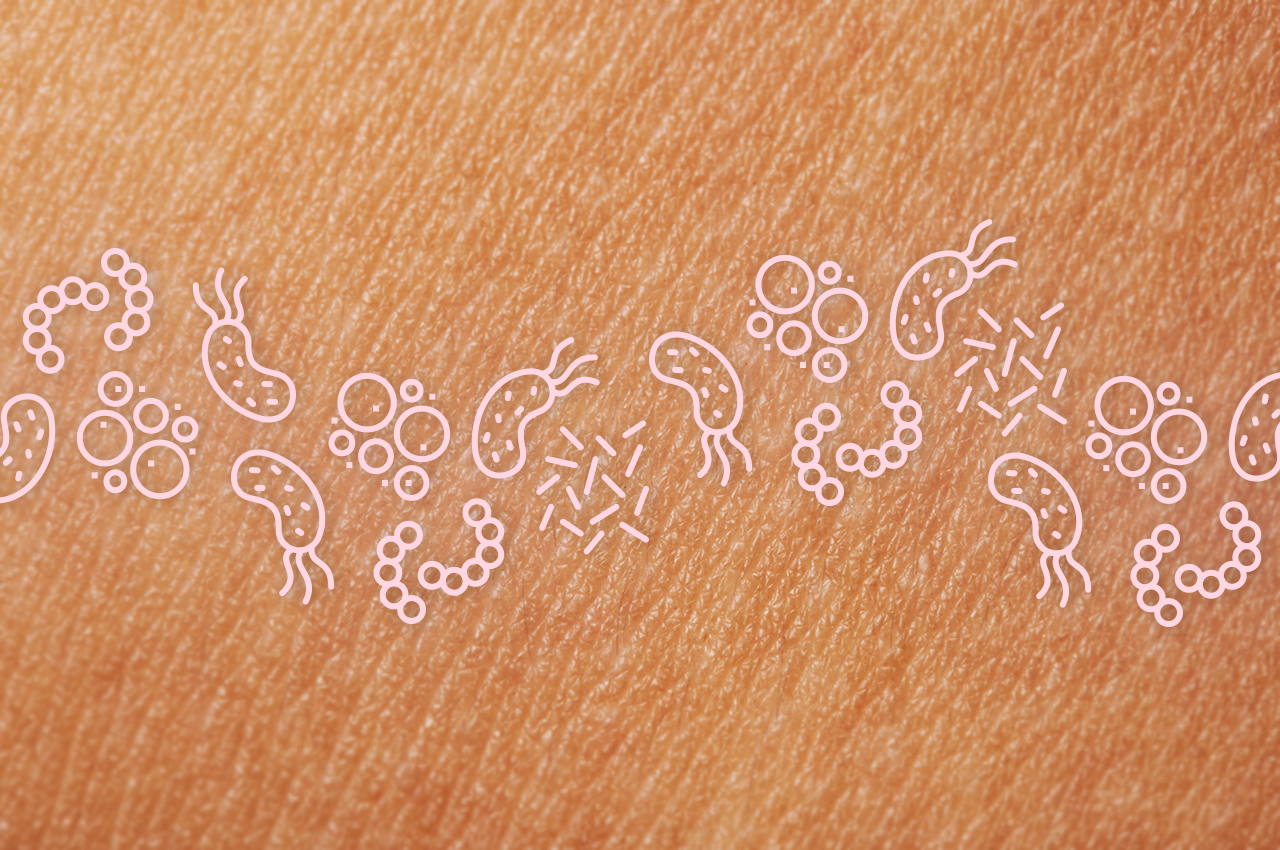Your skin biome is home to the microorganisms that live on your skin. These include bacteria, fungi and viruses. Just as the microorganisms in your gut play a role in your overall health, your skin biome influences the health of your skin. This includes the way your skin looks and feels, how it functions, as well as its overall condition.
A 2017 study published in the journal Scientific Reports revealed that in acne patients, the skin microbiome bacteria are less balanced than in people with healthy skin. Skin biomes also play a role in skin conditions like eczema, psoriasis and even dandruff.
A healthy skin microbiome protects your skin from infections and conditions by preventing the overgrowth of bad bacteria and pathogens. It also allows wounds to heal faster, acts as a barrier to keep out toxins and keeps inflammation at bay. Unfortunately, if you don’t look after your skin microbiome properly, you’ll wreak havoc on your skin’s overall health.
For example, if you have blemish-prone skin, your skin microbiome is probably overpopulated with pathogens and bad bacteria; while healthy skin would have a balance of both good and bad bacteria.
The overuse of antibacterial soaps, preservatives in topical skin products and other harsh products we apply to our skin, are just a few factors that can send skin bacteria out of whack.
Here are a few ways to keep your skin bugs in check.
Protect your skin microbiome
Eat more prebiotics
In order to thrive, the bacteria in your skin needs food. Prebiotics are a kind of fibre that good bacteria feed on, but your body can’t produce. Include prebiotics in your diet to ensure that your skin’s bacteria are nourished and plentiful. Eat foods like soybeans, oats, garlic, artichokes and asparagus.
Up your probiotics
Besides prebiotics, have probiotics every day. Like prebiotics, probiotics help your skin microbiome’s good bugs thrive. Probiotics also boost digestion. You can find them in most fermented foods and good options include yoghurt, sauerkraut, kimchi and tempeh.
Find the balance
Avoid using antibacterial soaps on your skin to ensure you maintain a healthy community of bacteria. Avoid moisturisers with harmful ingredients and use natural ones instead. Have at least one serving of both prebiotics and probiotics each day.
Destress regularly
Just as stress negatively affects your general health, it also affects your skin’s wellbeing. Find a stress management technique and use it daily. This can range from journaling to meditation and even yoga. Working out also helps you let off steam while working up a sweat ups your body’s prebiotics.
References:
- https://www.bustle.com/p/what-is-the-skin-microbiome-your-bodys-largest-organ-has-its-own-ecosystem-that-you-need-to-know-about-2991735
- https://greatist.com/live/skin-microbiome-how-to-cultivate-good-skin-bacteria#1
- https://www.bustle.com/p/what-is-the-skin-microbiome-your-bodys-largest-organ-has-its-own-ecosystem-that-you-need-to-know-about-2991735
- http://www.sci-news.com/medicine/skin-microbiome-acne-04762.html
- https://www.mindbodygreen.com/0-23996/your-skin-microbiome-why-its-essential-for-a-healthy-glow.html

